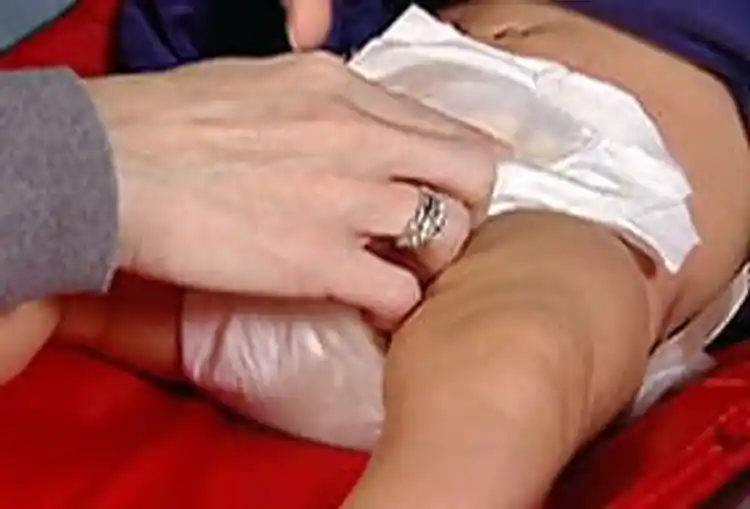Scoop on Pee and Poop

Hide Video Transcript
Video Transcript
Jennifer Shu, MD, FAAP, Pediatrician
With so many diapers to change, the first few weeks and months with your baby may seem all about pee and poop. How do you know what's normal? We've got some guidance step by step. Mom and Baby
We're gonna change it… Jennifer Shu, MD, FAAP, Pediatrician
The first thing to know is that there is a wide degree of variation in frequency, color and consistency. A healthy baby may urinate as much as once an hour – or go as long as three to four hours in between. The color should be yellow. Contact your pediatrician if the baby wets fewer than three diapers a day, you spot a dark pink or bloody-looking stain, there is a strong or foul odor to the urine – or if at any time your infant shows signs of distress. Mom and Baby
We can check and see what you put in that diaper for Mom. Jennifer Shu, MD, FAAP, Pediatrician
The first few stools of a baby's life will be blackish-green and sticky , It's called meconium. After that, most newborns have stools the color and consistency of mustard – but even that can differ from baby to baby or if they're feeding breast milk vs formula. Stools of breast-fed babies usually have little odor, while formula fed babies may have a green or tan colored stool and a stronger smell. Most newborns move their bowels several times a day. As babies grow, they go longer periods of time between – eventually just once a day or every other day. The stools will also change as your baby starts solids, becoming more firm and darker in color as a reflection of their change in diet. They may even contain whole bits of undigested food. All of that is perfectly normal. So what's not normal? Constipation is a concern if bowel movements are hard, infrequent, contain blood or mucus or seem to be causing pain. Diarrhea can be more difficult to detect because a baby's stool is naturally loose and unformed. A watery stool that occurs more frequently than usual can be a sign of trouble. Mucus, blood, an extremely foul odor and fever are also warning signs and deserve a visit to your pediatrician. Be sure to use a rectal thermometer as the most accurate gauge for fever. Dehydration from diarrhea is dangerous and can develop quickly. So again, consult your pediatrician with any concerns. As long as your baby gains weight at a steady pace and feeds at regular intervals, most diaper changes will be just a part of your daily routine. Simply know what to look for and take it step by step. For WebMD, I'm Dr. Jennifer Shu. 
